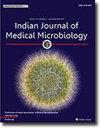HIV vaccine – Is there a ray of hope in the rugged journey?
IF 1.4
4区 医学
Q4 IMMUNOLOGY
引用次数: 0
Abstract
Background
The path of HIV vaccine development is riddled with numerous challenges. The high mutation and recombination rate of the virus, the establishment of a viral reservoir early in infection, and the failure to mount an effective immune response have added to the complexities of vaccine development.
Objective
In this review, we tried to revisit the vaccine development efforts, categorize the immunogens based on the immune response they tried to elicit and discuss the limited success or failure they achieved so far.
Content
The initial efforts of vaccine development concentrated on a three-pronged approach, induction of neutralizing antibodies, induction of cell-mediated immunity, or a combination of the two. Since then, the efforts to develop an effective immunogen have come a long way through the usage of poxviral vectors, conserved immunogens, and mosaic immunogens to the current trend of using mRNA-based vaccines, engineered outer domains on scaffold proteins and the development of germline targeting immunogens for induction of broadly neutralizing antibody-producing B-cell lineage. We also tried to narrate the current trends and the future directions of HIV vaccine development.
艾滋病疫苗——在崎岖的旅途中还有一线希望吗?
艾滋病毒疫苗开发的道路充满了许多挑战。病毒的高突变率和重组率、感染早期病毒库的建立以及未能产生有效的免疫反应,增加了疫苗开发的复杂性。目的在本文中,我们试图回顾疫苗的开发工作,根据它们试图引起的免疫反应对免疫原进行分类,并讨论迄今为止它们取得的有限成功或失败。疫苗开发的最初努力集中在三管齐下的方法,诱导中和抗体,诱导细胞介导的免疫,或两者的结合。从那时起,开发有效免疫原的努力已经走过了漫长的道路,通过使用痘病毒载体,保守免疫原和花叶免疫原,到目前使用基于mrna的疫苗,在支架蛋白上设计外部结构域和开发生殖系靶向免疫原来诱导广泛中和抗体产生的b细胞谱系。我们还试图叙述艾滋病毒疫苗发展的当前趋势和未来方向。
本文章由计算机程序翻译,如有差异,请以英文原文为准。
求助全文
约1分钟内获得全文
求助全文
来源期刊

Indian Journal of Medical Microbiology
IMMUNOLOGY-
CiteScore
2.20
自引率
0.00%
发文量
154
审稿时长
73 days
期刊介绍:
Manuscripts of high standard in the form of original research, multicentric studies, meta analysis, are accepted. Current reports can be submitted as brief communications. Case reports must include review of current literature, clinical details, outcome and follow up. Letters to the editor must be a comment on or pertain to a manuscript already published in the IJMM or in relation to preliminary communication of a larger study.
Review articles, Special Articles or Guest Editorials are accepted on invitation.
 求助内容:
求助内容: 应助结果提醒方式:
应助结果提醒方式:


